Why would a wine writer find themselves schlepping all the way to deepest, darkest Wiltshire on a Thursday afternoon?
For a truffle-themed dinner cooked by a former Michelin-starred chef paired with fine Tuscan wines – that’s why.
I can feel the eye rolls now. Was such a jaunt really necessary, from a professional perspective? Was there a valid story there?
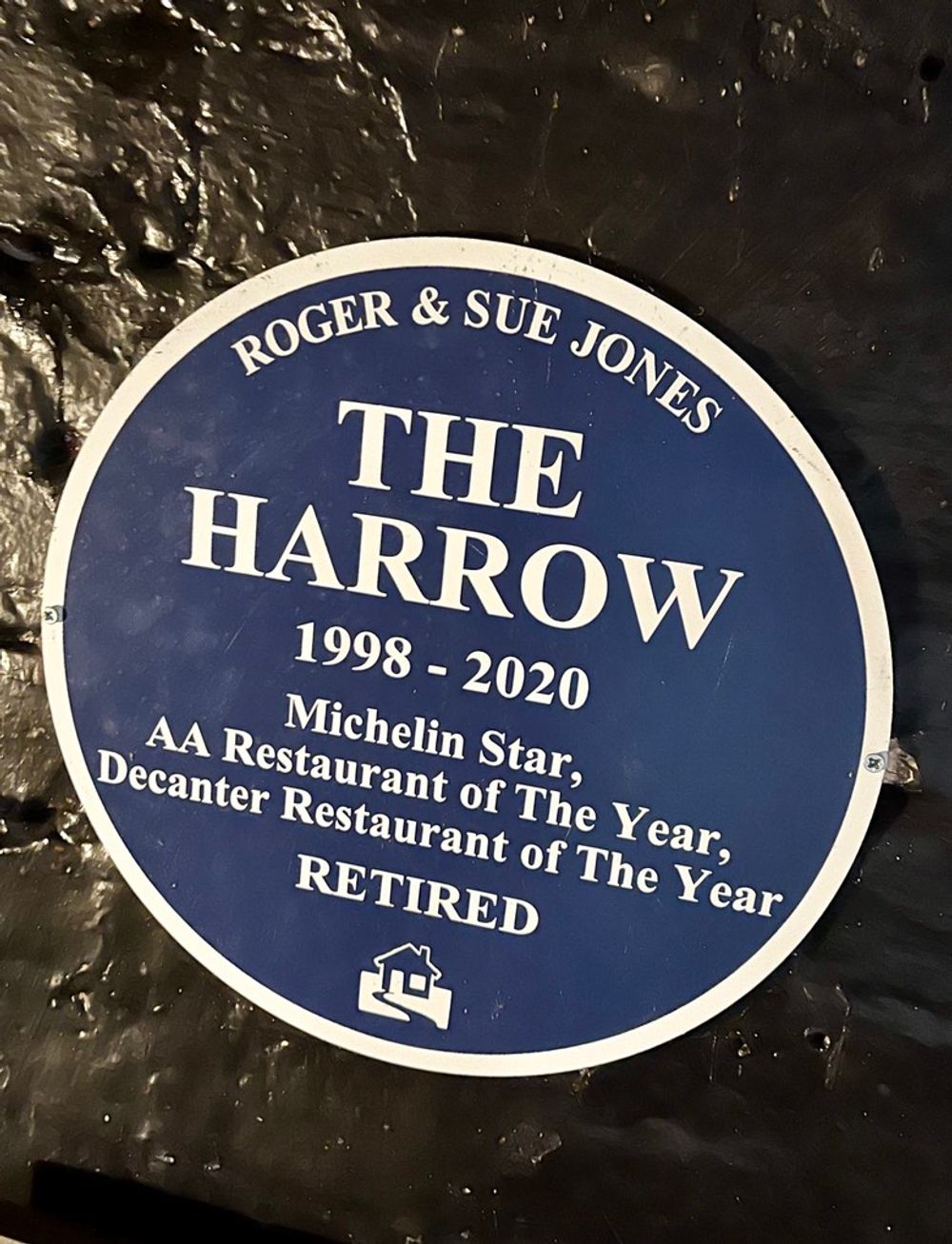
Let’s consider the editorial ingredients...
I didn’t know the wines of the featured producer, the venerable Barone Ricasoli, though they would be easy enough to track down and taste through importer Fells’ highly efficient press arm, if that was my motivation.
The restaurant in question, The Harrow at Little Bedwyn, has been closed for several years, so there was no consumer relevance there (though its wine-loving chef-patron Roger Jones, occasionally of this parish, does still offer bespoke dinners).
The fact that Chianti goes well with truffles? Fun to explore, but hardly hold-the-front-page material. And in any case, I’m not a food writer.
In my mind, the justification was threefold. The chance to meet up again with Roger, who is not only a lot of fun and good for gossip, but a potentially useful contact as I try to build my fledgling content creation agency, Grand Cru Creative.
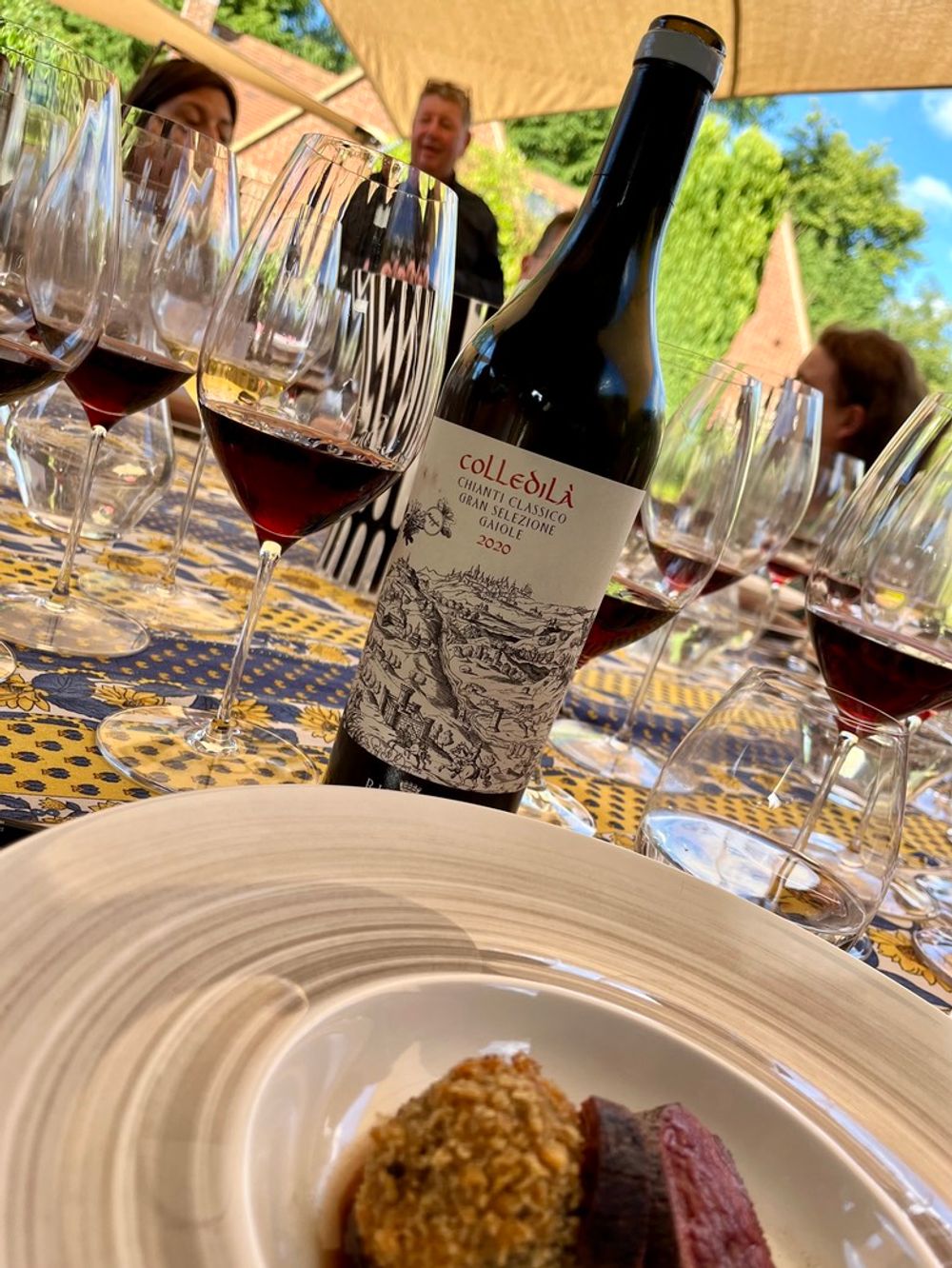
Hold the front page: Chianti goes with truffles
In a similar vein, Stefan Neumann MS, who was presenting the wines for Fells, is a man with his finger on the pulse, and the source of great market insights – hence why I bagged the seat next to him on the train journey out to Newbury.
And, from an editorial perspective, my role as wine editor of lifestyle title Gentleman’s Journal makes a broader, wine-and-truffles angle more viable than it would be here, for example (did you know that the best white truffles come from Croatia and Serbia, rather than Piedmont?).
Plus, of course, there was the chance to get a few casually posed photos to demonstrate how important I am and generally show off my gilded lifestyle by posting a humble Instagram brag from the sweaty minibus on the way home.
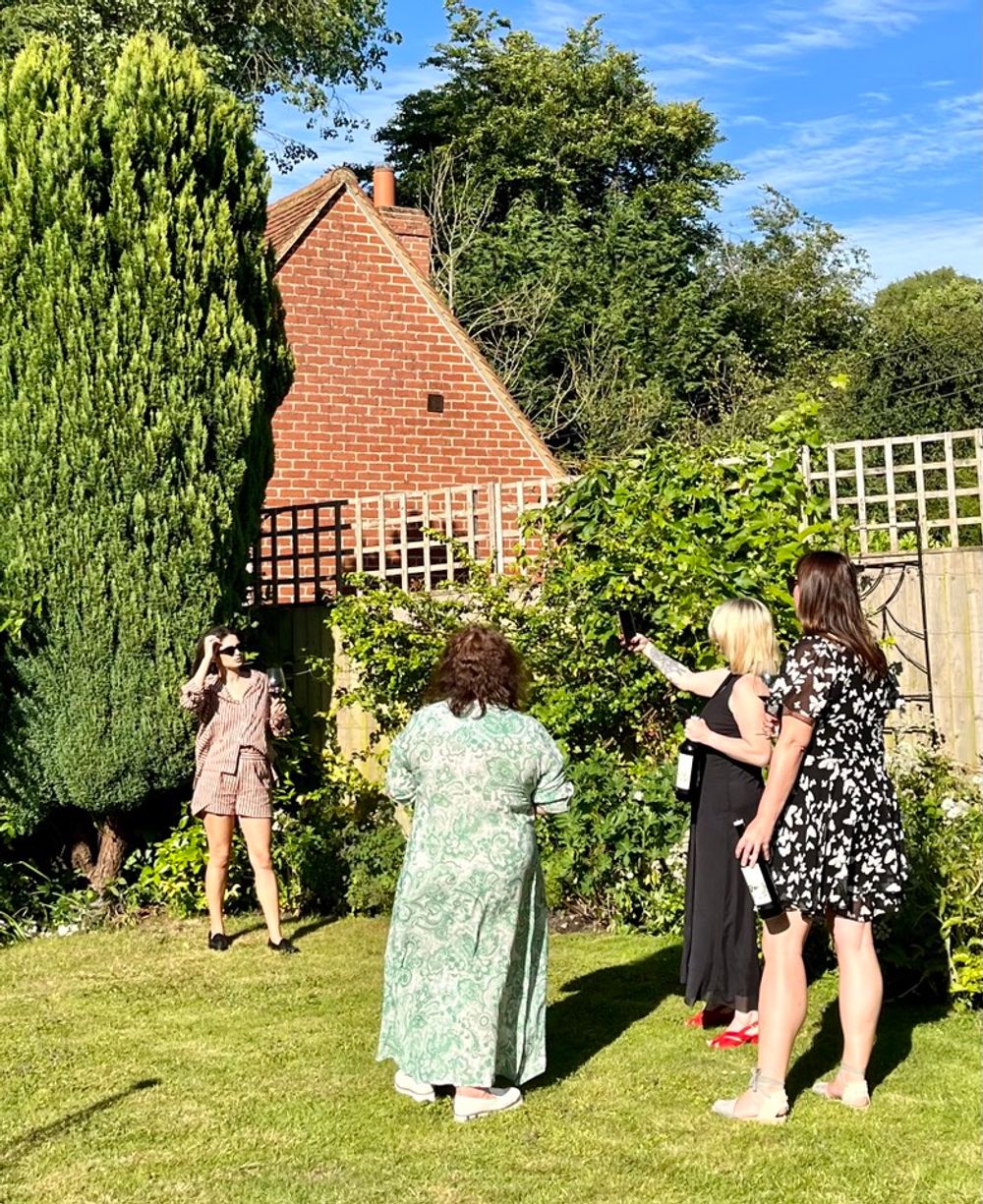
Tech-savvy communicators will 'scoop' the traditional writer every time
Alas it transpired that the majority of my fellow attendees were more tech-savvy communicators, for whom social media is a way of life, rather than an afterthought. As a result, of course, their coverage was far more slick (and prompt) than I could ever manage, so bang went that idea. All of which got me thinking about the various reasons communicators harbour for attending such an event.
The trade likes to think that all wine writers are freeloaders, and have nothing better to do than swan off to swanky dinners (and if you thought this one was swanky, you should have seen the itinerary for the Dom Pérignon vintage launch I attended in Barcelona last week).
But no matter the wow factor, an event needs to be of professional value for guests too. As someone who now works for himself, rather than being on a salary as I was when editing Decanter and Club Oenologique, I’m acutely aware that time spent eating and drinking is generally time spent not earning.
So what do communicators look for when deciding to attend a tasting/lunch/trip?
I suspect the answer varies markedly according to the channel on which they are active, but for me, as a more ‘traditional’ wine writer, the following criteria all play a part:
• Education. There are many tastings and events that I might not write up, but are useful reconnaissance, purely to learn about the region/wines/topic in question (did you know that black truffles can be cultivated, whereas white truffles can’t?). I’m not a critic who’s in the business of tasting and rating countless wines, so a walkaround tasting holds little appeal. I’m far more likely, on the other hand, to sign up to a tasting that includes a panel discussion or presentation from the winemaker or host (Zak Frost of Wiltshire Truffles proved a font of knowledge on the fungi front – did you know that even if you do everything right, and plant trees, inoculated with spors, in the right place – humid climate with summer rains – black truffles take 10 years to develop and even then might not appear?).
• Likewise, short, intensive, small-group trips to regions with which I’m not familiar are hugely useful. I’ve just returned from 48 hours in Sanlúcar de Barremeda, which, to my shame, I’d never visited. I am now less of a novice on the nuances of manzanilla. And yes, we indulged in some fine seafood while we were there (a little too much, in the case of one poor attendee). Longer trips, by contrast, are more difficult to justify (of which more later).
• A fresh angle/story/novelty factor. Am I going to get some good content (and commissions) out of this that justify the time invested? With press trips, which cost hosts thousands, if not tens of thousands of pounds, the organiser generally wants to know this too – and I’ll have an idea of the scope of coverage before I go (though note to PRs – the flipside of this is that any good writer can’t guarantee the angle that this will take, since this rather depends on what he or she finds when there – otherwise why go?).
• Who else is going. Nosey git that I am, I’ve taken to asking organisers for the guest list in advance. There are various reasons for this. On a practical level, I’m terrible at recognising people, so it’s good to have prior warning so I can pretend I remember them (as well as being able to seek anyone out who I only know by name). Secondly, coverage. If an event is all over social media before it’s even finished, then anyone who comes to a more traditional, by-lined article (my stock-in-trade) days or sometimes weeks later will feel they’ve already read about it, no matter how different the angle/approach. This impacts the likely approach.
Such advance intelligence also gives you a feel for the type of occasion it will be. If the hardcore wine writing set are in attendance, you know it’s going to be a fairly in-depth, more geeky angle. If it’s the influencer brigade, it’s going to be more about the lifestyle element. Such a make-up also shapes the vibe of the event – how people interact with and quiz the host impacts what you get out of it. I must admit my heart sank a little at the guest list for Roger’s, though in the end, I decided I could just about survive for an afternoon.
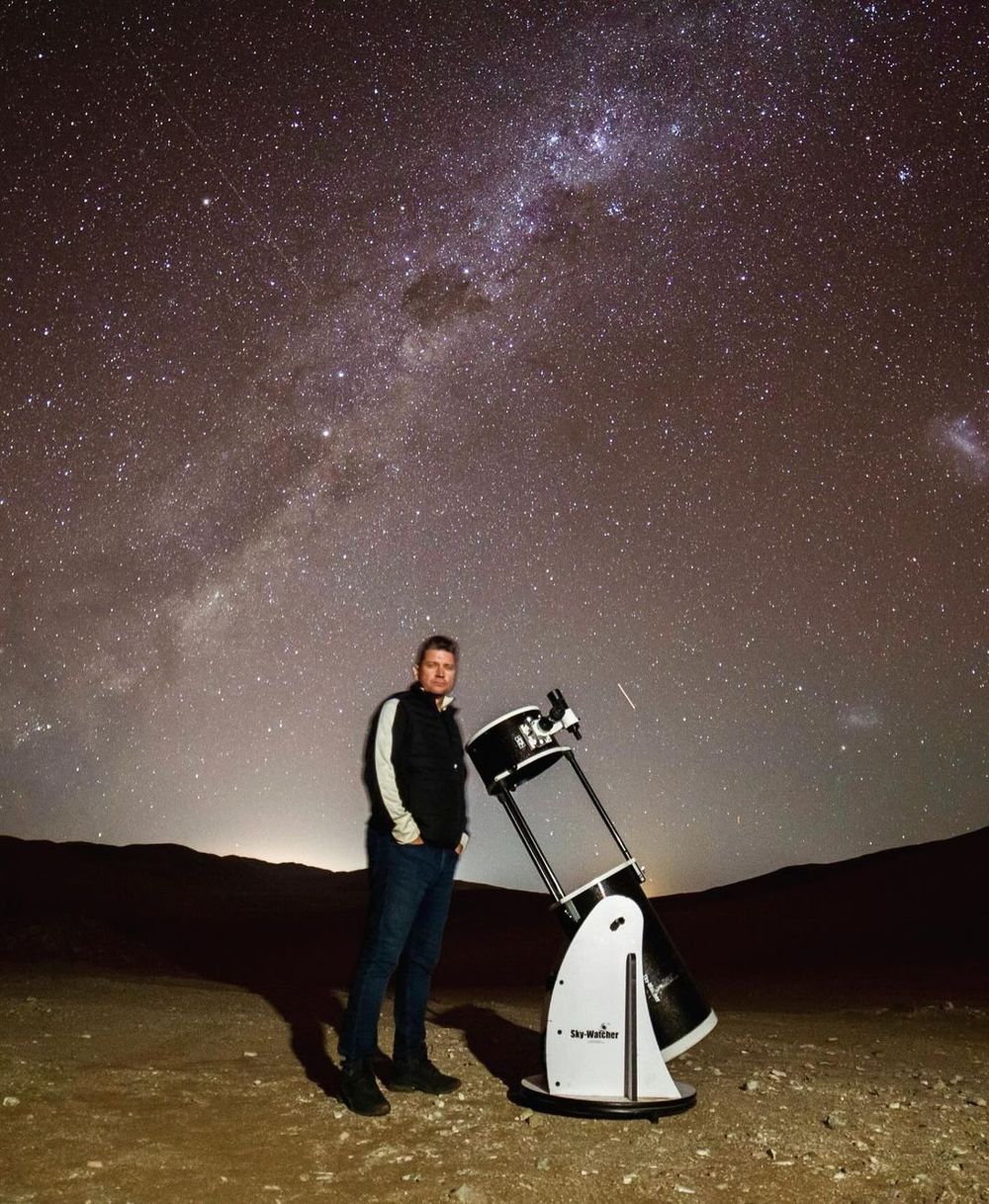
If you can't beat 'em join 'em. Woodward does Insta-gold in the Atacama
A longer, overseas trip is different. Earlier this year I was invited on a 10-day, intensive press trip to Chile and Argentina, countries I hadn’t been to for over a decade, and was thus keen to re-visit. But again, I was wary of being away from my desk for 10 days with just two other travelling companions, so I immediately checked who else was coming. When I found out that one of the pair was Oz Clarke, I signed up like a shot – the amount I learned from him before even setting eyes on a producer was invaluable (not to mention the fact that he is bloody good company).
• The host. Are they going to be good for content and/or a good contact? In the past, this was all about editorial value, but now I wear another hat, and everyone is a potential client (I managed to pick one up both in Argentina, and at a recent English wine tasting). With that in mind, I’ve started gatecrashing more trade events, and I can happily report that members of the trade ask far more probing – and relevant – questions than the press. The reason? They’re more focused on commercial realities and likely sales rather than things that consumers don’t care about such as blends, oak regimes and clones.
• Time/date/venue. Practical concerns are hugely relevant – if, of course, impossible to co-ordinate to suit everyone. But most wine writers work from home, so battling the tube needs to be made worthwhile – even better if you can tie it in with a couple of other events. Despite appearances, I actually tend to shy away from lunches, which invariably end up absorbing the whole day. I prefer afternoon events, which allow time to get work done in the morning, whereas the reverse timetable tends to be less productive. And I guarantee that a Monday commitment that you sign up to weeks in advance will feel onerous when the day itself arrives. Friday jaunts, on the other hand, can sometimes come as a blessed relief – if you’ve hit all your deadlines by then, of course. My general rule when considering my RSVP is to ask, ‘If this event was today, would I want to go?’ Which of course leads to…
• The wow factor. No matter how much we all try to deny it, I defy anyone not to be swayed by a bit of glitz. A tasting with a dinner at a starry restaurant you’ve never tried will add a certain allure. Host that same tasting in an importer’s office meeting room, and I can guarantee the take-up will be minimal. I could have gone to DP’s London launch last week, but I chose the 48 hours in Barcelona.
There’s a fine line, though, between a wine launch at a swanky venue and a complete jolly such as that enjoyed by various keen Instagrammers at Wimbledon with Lanson, or Ascot with Moët this year. I’m not having a go at anyone here, I hasten to add – I indulged plenty of similar hospitality in my editing days. Though I would argue that there’s a difference between an employee cementing a commercial relationship with a supplier, and an individual nakedly pimping themselves out in return for an Instagram post. But that’s an argument for another day (or for Jamie Goode on Twitter).
Summing up...
Ultimately, one man’s indulgence is another man’s day at the coalface. In all honesty, I don’t mind admitting the truffle dinner was more the former than the latter. It suited my diary, I knew it would be fun – and there were a couple of good contacts worth cultivating. Plus look, I got an article out of it. And I bet you didn’t know that, when it comes to truffle cultivation, middle-aged trees are more productive than older trees. Like vines and people, then…
The Barone Ricasoli wines are distributed and sold in the UK by Fells, which is a commercial partner of The Buyer. To discover more about Fells click here.
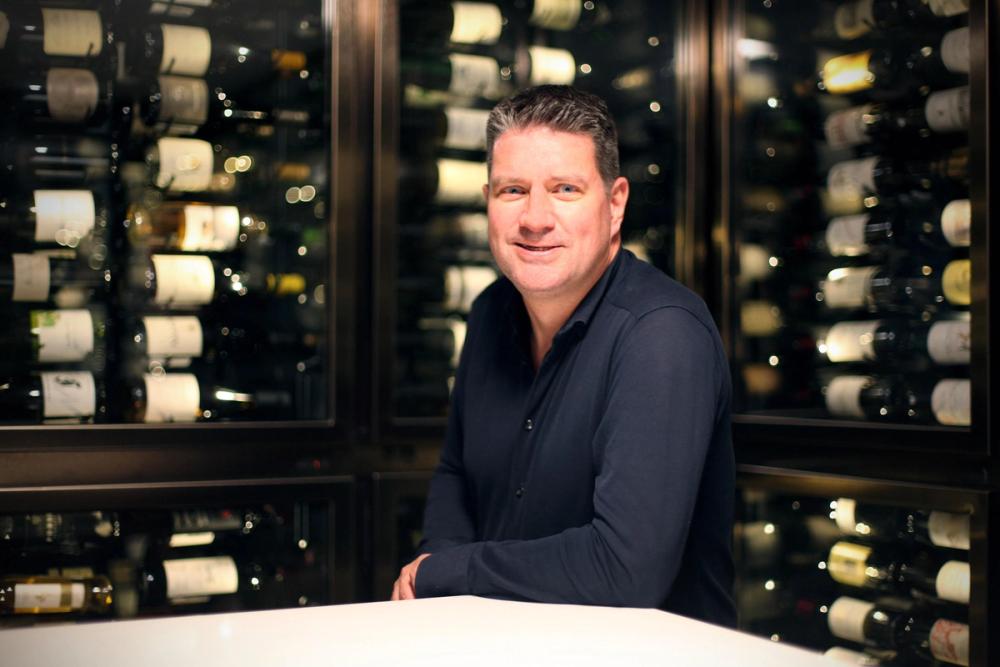
Guy Woodward is the founder of content creation agency Grand Cru Creative. To find more about what he can offer click here.






























